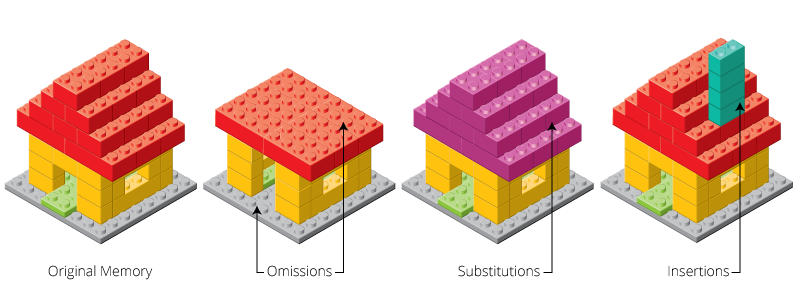Human Memory
There are 2 types of memory:
- Declarative Memory
- Memories that can be transferred to other people simply by talking about them. Ex: episodic memories (of events) and semantic memories (of facts)
- Non-declarative Memory
- Memories that cannot be transferred to other people simply by talking about them. Ex: classically conditioned responses and procedural memories (of motor movement)
How fast we forget Forgetting Curve
Computer <> Human Brain
1. Information must first be Encoded into memory (Encoding (Memory)) 2. Then it must be Stored in memory (Storage (Memory)) 3. Finally, it must be Retrieved from memory (Retrieval (Memory))

Not the perfect metaphor
Although the metaphor for a computer has been useful for inspiring research, it does not perfectly describe how memory works. For instance, when you retrieve the file holding your class paper from your computer, you don’t expect that it has changed at all since you last saved it. You would be surprised if passages were deleted, or had been changed in some way, or if new passages had suddenly been added.
However, this is exactly the nature of memory.
How Memory Works
Memory is NOT like a recording that can be rewound and played over and over. Memories must be Reconstructed in your mind each time they are used.
In this sense, memory is more like playing with Lego bricks. Each time you build the puzzle, you might neglect a few bricks, or add a couple of new ones, or substitute white bricks for blue bricks. Similarly, memories can lose details, or change details in subtle ways, or even add details that never actually happened. These are called
- Omissions
- Substitutions, and
- Insertions

“Our least accurate memories are those that we think about the most. Why? Because memories must be reconstructed each time you use them, and errors are introduced each time a memory is reconstructed.”
When we have memories of things that never happened / wrong, they’re called Confabulation.
How to better remember things
Don’t remember what, remember why (go down the layer of abstraction). Get the explanation for how things work.
I feel myself more and more reliant on Obsidian. I don’t think this is a good thing, you want to be able to retrieve information fast. I find myself forgetting a lot of things.
I haven’t looked at the research in this, but talking with Chester Chung:
- If you are intrinsically curious about the question, you are more likely to remember the answer.